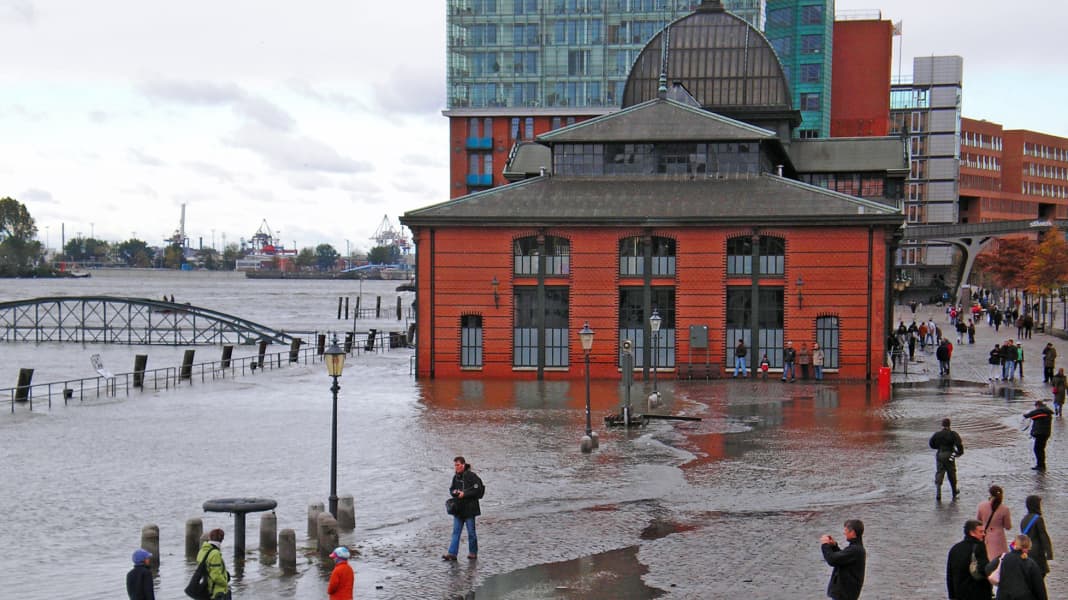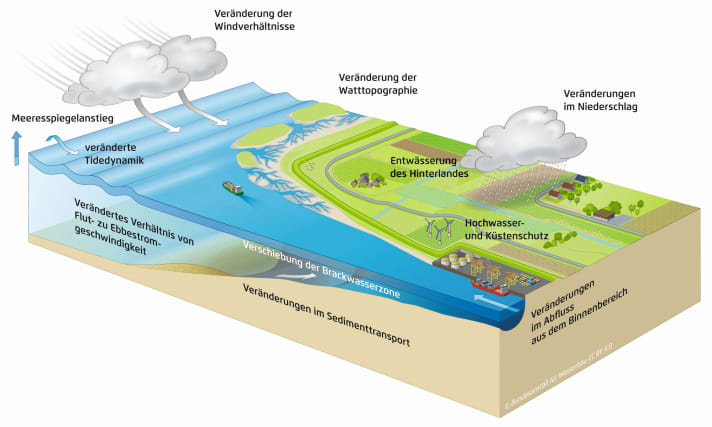Coast in a changing climate: Studies simulate storm surges in the future
Boote Redaktion
· 25.10.2023

Towards the end of the century, climate change could lead to more frequent weather conditions that favour storm surges on the German North Sea coast. This is shown by studies conducted by the Federal Maritime and Hydrographic Agency (BSH) in collaboration with the Federal Waterways Engineering and Research Institute (BAW). Storm seas, such as the one last Friday, on the other hand, could occur less frequently as climate change progresses. The studies will be presented on 26 October at the second Transport and Infrastructure Conference (VIT) in Berlin.
BSH President Helge Heegewaldt: "Climate change presents us with enormous challenges that we can meet with the help of scientific research. We are therefore making the findings available to a wide range of stakeholders. For example, shoreline structures can be fortified in advance and measures can be taken to make shipping more resilient to extreme events."
About storm surges and storm seas
The studies are investigating the conditions that favour storm surges and storm seas in the German Bight - and how these could change in the future as a result of climate change. The focus is on atmospheric conditions such as weather patterns and storm intensity, as well as sea level rise. The simulations show what the future could look like.
But how do storm surges actually occur? They are caused by strong winds that push the water towards the coast and into the tidal estuaries, which can lead to extremely high water levels. The opposite is storm seas: extremely low water levels when strong winds push the water away from the coast and out of the estuaries.
Simulations show changes
In the simulations without further climate protection measures, there are on average around 10 per cent more days per year with atmospheric conditions that could lead to storm surges in the German Bight towards the end of the century. In contrast, there are on average around 25 per cent fewer days per year with conditions that could cause storm surges. Rising sea levels are also exacerbating this trend: today's extremely high water levels are becoming more frequent and extremely low water levels less frequent.

Presentation of the studies
BSH and BAW present the studies at the second VIT of the expert network of the Federal Ministry for Digital and Economic Affairs and Transport (BMDV) on 26 October 2023. The conference is dedicated to "Research for resilient, networked and environmentally friendly modes of transport".
The findings are used to advise the various federal authorities. The DAS basic service "Climate and Water" also makes them available to other interested parties. Building on this, the numerous stakeholders on the coast can prepare for the future challenges posed by climate change.
